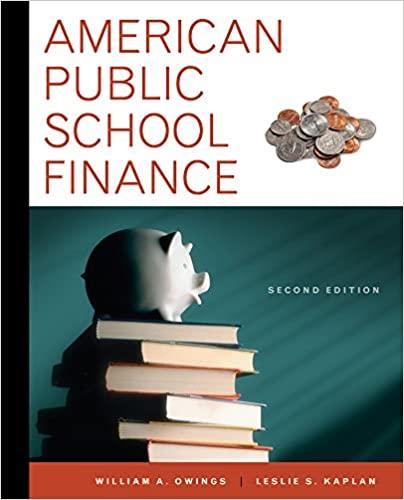Question
McPhee Food Halls operated a chain of supermarkets in the west of Scotland. The company had had a lackluster record, and since the death of
McPhee Food Halls operated a chain of supermarkets in the west of Scotland. The company had had a lackluster record, and since the death of its founder in late 2001, it had been regarded as a prime target for a takeover bid. In anticipation of a bid, McPhees share price moved up from 4.90 in March to a 12-month high of 5.80 on June 10, despite the fact that the London stock market in- dex as a whole was largely unchanged. Almost nobody anticipated a bid coming from Fenton, a diver- sified retail business with a chain of clothing and department stores. Though Fenton operated food halls in several of its depart- ment stores, it had relatively little experience in food retailing. Fen- tons management had, however, been contemplating a merger with McPhee for some time. The managers not only felt that they could make use of McPhees food retailing skills within their de- partment stores, but they also believed that better management and inventory control in McPhees business could result in cost savings worth 10 million. Fentons offer of 8 Fenton shares for every 10 McPhee shares was announced after the market close on June 10. Since McPhee had 5 million shares outstanding, the acquisition would add an ad- ditional 5 (8/10) = 4 million shares to the 10 million Fenton shares that were already outstanding. While Fentons management believed that it would be difficult for McPhee to mount a success- ful takeover defense, the company and its investment bankers pri- vately agreed that the company could afford to raise the offer if it proved necessary. Investors were not persuaded of the benefits of combining a su- permarket with a department store company, and on June 11 Fen- tons shares opened lower and drifted down .10 to close the day at 7.90. McPhees shares, however, jumped to 6.32 a share. Fentons financial manager was due to attend a meeting with the companys investment bankers that evening, but before doing so, he decided to run the numbers once again. First he reestimated the gain and cost of the merger. Then he analyzed that days fall in Fentons stock price to see whether investors believed there were any gains to be had from merging. Finally, he decided to revisit the issue of whether Fenton could afford to raise its bid at a later stage. If the effect was simply a further fall in the price of Fenton stock, the move could be self-defeating.
1) After June 10, what was price per share of mcphee and fenton?
2) After June 10, what was number of shares for mcphee and fenton?
3) What was total market value after june 10 for mcphee and fenton?
4) What was the market value after the merger?
5) How much did fenton overpay by?
6) What should fenton have paid for mcphee in shares?
7) What is the maximum bid price fenton should have paid?
(Please show work) Thanks!!
Step by Step Solution
There are 3 Steps involved in it
Step: 1

Get Instant Access to Expert-Tailored Solutions
See step-by-step solutions with expert insights and AI powered tools for academic success
Step: 2

Step: 3

Ace Your Homework with AI
Get the answers you need in no time with our AI-driven, step-by-step assistance
Get Started


